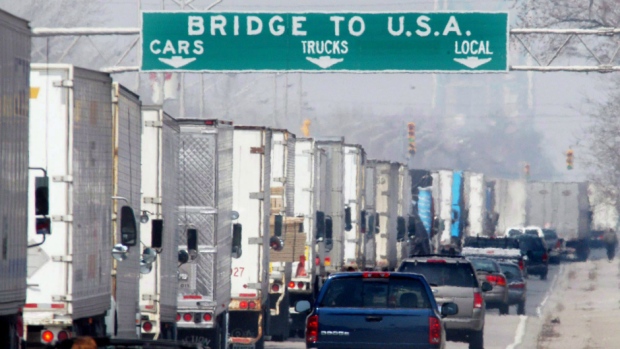Feb 14, 2017
Trump border tax could shave full percentage point off Canada’s GDP: C.D. Howe
, BNN Bloomberg

A new report from C.D. Howe Institute warns that a border adjustment tax (BAT) implemented by the Trump administration would drag down Canada’s economy and could also be damaging to other U.S. trading partners.
While such a border tax has not yet been imposed, the report predicts such a levy would cut Canada’s gross domestic product by a full percentage point. The BAT would be part of a larger reform plan to cut the U.S. corporate tax rate to 20 per cent from 35 per cent.
The study also warns that Canadian prices could dip as much as two per cent, as companies aim to preserve their exports to the United States.
“This [BAT] would ease pressure on Canada’s import-competing industries and negatively affect Canada’s export-oriented industries,” according to the forthcoming report.
A BAT would cause damage to the U.S.economy as well, the report said.
“The negative impact of the tax on imports dominates the macro-level impacts, overwhelming the effects of the export subsidy,” according to the report. “Strong terms-of-trade gains for the United States boost nominal GDP, but real GDP and welfare decline due to loss of competitiveness and higher consumer prices.”
Canada’s position on the possibility of a new tax from the U.S. has been made clear. At the end of a two-day trip to Washington last week, which included a meeting with U.S. Secretary of State Rex Tillerson, Foreign Affairs Minister Chrystia Freeland said she would strongly oppose any new tariffs imposed by the U.S. government.
"I did make clear that we would be strongly opposed to any imposition of new tariffs between Canada and the United States," she told reporters after the meeting.
Prime Minister Justin Trudeau travelled to Washington for his first face-to-face meeting with U.S. President Trump Monday, where both taxes and trade were expected to be on the agenda.
--With files from the Canadian Press

